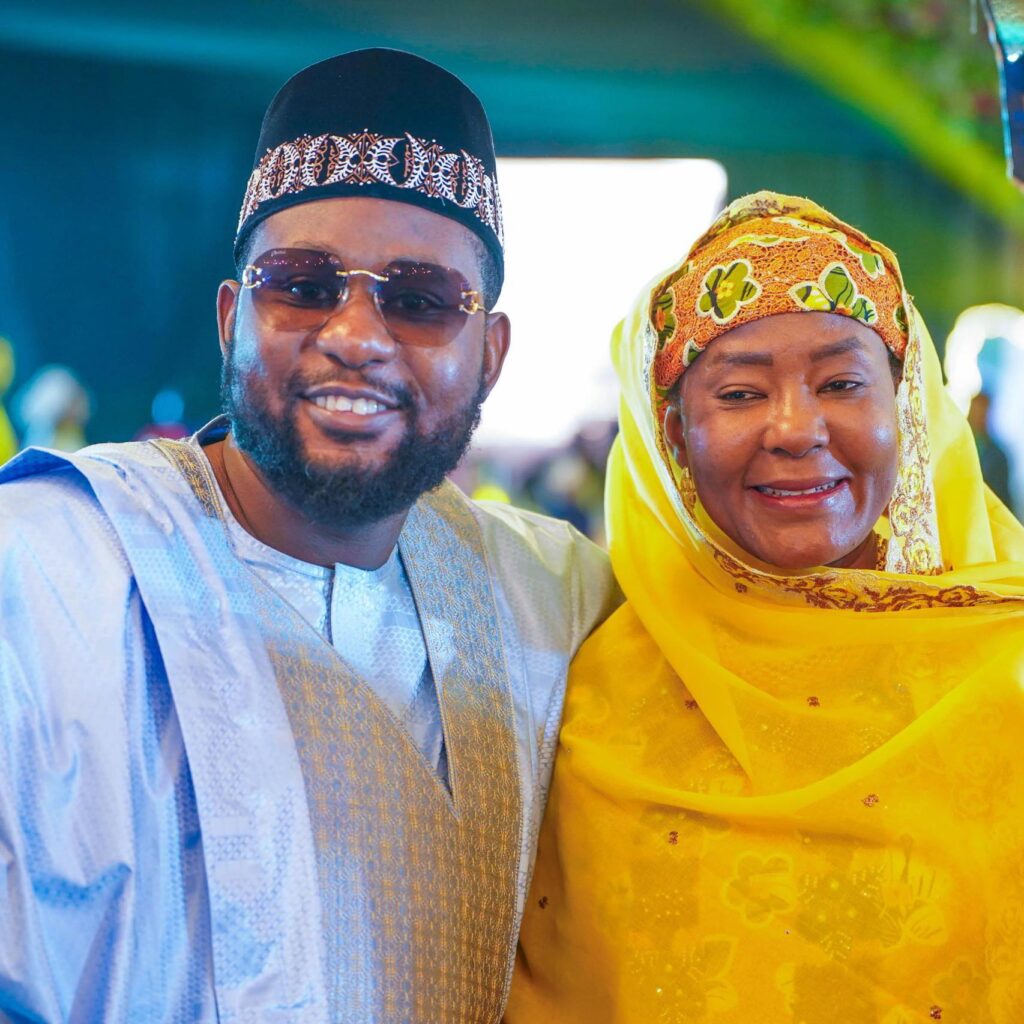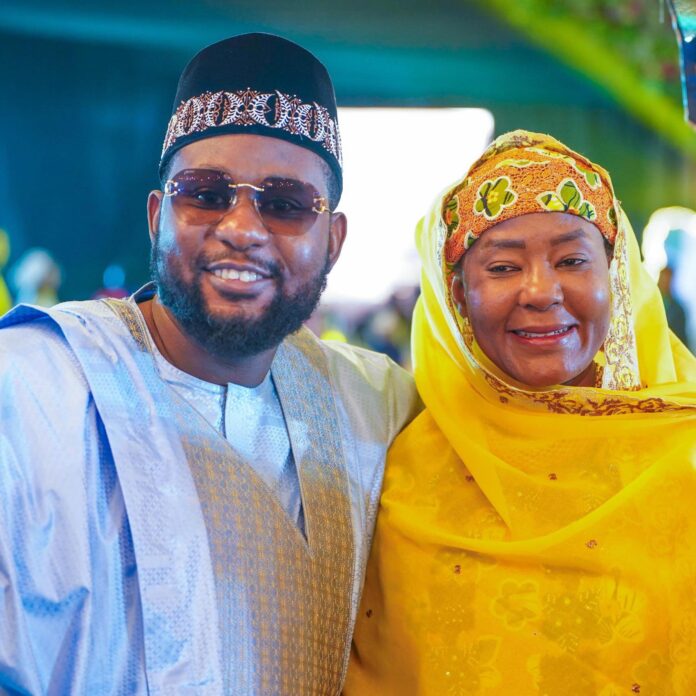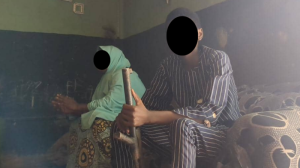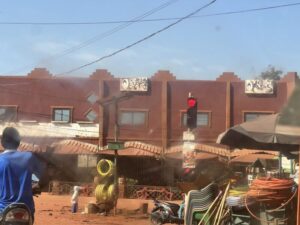Shamsudeen Bala Mohammed, son of Bauchi State Governor Bala Mohammed, has threatened WikkiTimes publisher, Haruna Mohammed Salisu, saying the latter will remain his enemy forever.
The governor’s son issued the threats when the journalist contacted him via WhatsApp asking him how he would like to be reached for comment about an ongoing investigation.
He stated that only the court has the authority to determine whether Haruna’s investigation is legitimate or not.
“If you aren’t a coward, reveal your whereabouts, give us your address and where you are alongside your server so that we can institute litigation against you if you lie,” Shamsudeen told the journalist, adding, “I think the court should be the one to show you if what you are trying to substantiate is right or wrong.”
‘You operate like Sahara Reporters and Premium Times’
Shamsudeen, who falsely accused Haruna of trying to spread misinformation intended to blackmail him, said the journalist and his team operate like Sahara Reporters and Premium Times. “But because you know you are going to spread misinformation and you are not sincere, you don’t even have an office,” he continued. “You operate like Sahara Reporters and Premium Times a blackmail (sic). You have completely lost it. Go ahead and do whatever you want to do.”
Shamsudeen vowed not to respond to any questions. He subsequently asked Haruna to continue his reporting.
Without being fully informed about the context of the ongoing investigation, Shamsudeen said: “Although I am not a public servant and I believe you are misinformed, there is nothing in Bauchi State that is linked to me on issues bordering funds or anything. Maybe it’s just word of mouth from the street. But as usual, you know you journalists have some bias, especially you.”
He added: “You are kind of not being patronised or you have a paymaster who pays you to do these types of things. I think you are free to write whatever it is that you are doing.
Audio 1
Audio 2
“But just know that if you don’t have any evidence to substantiate it, you will be my enemy forever for lying to me. That is my warning to you because first, I don’t do contracts in your town or our town Bauchi.
“No company of mine is executing any contract in Bauchi but you are free to do whatever you like. This isn’t the first time you are doing this. You may send it if there is anything, I will clear my name if there isn’t then silence is an answer.”
Previous corruption charges against Shamsudeen
Although the specifics of the ongoing investigation had not yet been disclosed to the governor’s son at the time of his conversation with Haruna, Shamsudeen suspected it was related to a contract scam or money laundering.

In February 2017, he was arraigned on a 20-counts-charge bordering on money laundering. The governor’s son allegedly committed the crime in the twilight of his father’s tenure as the minister of FCT.
According to the Economic and Financial Crimes Commission (EFCC), Shamsudeen paid various cash sums amounting to N1.2 billion beyond the limit set by the Money Laundering Act for the purchase of houses without going through a financial institution.
In a bid to conceal the suspected stolen funds, Shamsudeen paid the money in cash to four firms to acquire properties in choice areas in Abuja. The four companies include Bird Trust Agro Allied Limited, Intertrans Global Logistic Ltd, Diakin Telecommunications Ltd, and Bal-Vac Mining Nigeria Ltd.
Shamsudeen and the four companies pleaded not guilty to the charges.
Seven months after Bala was first dragged to court by the anti-graft agency, the court ordered forfeiture of the assets linked to him in “choice areas” in Abuja.
However, six years later, the case was struck out by the Federal High Court in Abuja.
The court argued that the prosecution failed to prove its allegations against the defendants beyond reasonable doubt as required by law and therefore discharged and acquitted the defendants of all charges.
WikkiTimes was repeatedly targeted by the Bauchi government
Shamsudeen’s claim that WikkiTimes does not have an office in Bauchi is not true, the news platform’s office is located in the heart of the city.
However, the persistent targeting of the newspaper and its journalists forced WikiTimes to relocate its office three times within Bauchi. At times, its reporters have resorted to working from home to evade harassment by the authorities.
In Nigeria, the relationship between journalists and politically exposed individuals is fraught with peril.
When a public figure tells a journalist, “You will be my enemy forever,” it signals more than just disdain—it implies an enduring vendetta. In the harshest contexts, it can carry the specter of lethal consequences. Journalists across the country frequently face harassment, intimidation, and worse. The WikiTimes publisher who has been subjected to a sustained campaign of threats and intimidation, with his family is also caught in the crossfire.
During the last presidential election, Shamsudeen’s father, Bala Mohammed who is the governor of Bauchi State ordered his security details to arrest the publisher.
He was detained without due process and later arraigned before a magistrate’s court, only to be released. It was not the first time that WikkiTimes and its journalists have found themselves in the crosshairs of the political elite, who have often leveraged law enforcement to suppress reporting they find unflattering.
This sustained pressure reached its zenith earlier this year, when Haruna fled Nigeria, seeking refuge abroad in April. The intensity of the threats against him culminated in his being declared wanted by a magistrate just weeks ago, an incident emblematic of the sustained persecution he has endured.
The legal onslaught against WikkiTimes is relentless, with the newsroom currently facing nine lawsuits, most of which have been filed in Bauchi State by political elites and their allies.
The Committee to Protect Journalists has consistently condemned Haruna’s victimisation. Despite the advocacies, the threats against him and the outlet endured.



